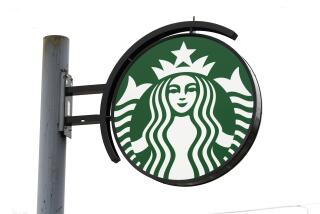Baxter Denies It Sold Plant to Get Off Arab Blacklist
- Share via
CHICAGO — Hospital supply giant Baxter International Inc. on Tuesday denied it sold a plant in Israel to get off the Arab League’s blacklist of companies doing business with the Jewish state.
Baxter, the world’s largest hospital supply company, has agreed to build a similar plant in Syria.
Spokesman Les Jacobson said Baxter learned indirectly of its removal from the list in January.
He denied Baxter officials sought to curry favor with the Arabs by selling the plant in Israel, a move that would violate a U.S. law forbidding American companies from participating in foreign boycotts.
Jewish leaders are demanding an explanation from Baxter, which is based in Deerfield, Ill., north of Chicago.
The issue arose from a memorandum about Baxter’s Middle East operations purportedly on file in the Arab League’s boycott office in the Syrian capital Damascus. The memo suggests the 1988 sale of the Israeli plant and the delisting were linked.
Jacobson questioned the authenticity of the memo, copies of which were sent to Baxter directors and to the Wall Street Journal by Richard Fuisz, a Washington-area businessman and former chief executive of Baxter’s Middle Eastern Medcom subsidiary.
Fuisz sued Baxter in 1985 on charges of wrongful termination and defamation after he was ousted from his job and demoted, Jacobson said. The lawsuit was settled.
Fuisz could not be reached for comment. Telephone calls to his home in Great Falls, Va., went unanswered.
Jacobson said company officials probably discussed with Syrian government officials their plans to sell the Israel plant, not as a condition of being dropped from the blacklist but rather in the context of negotiations that resulted in an agreement signed April 13 to jointly build a plant in Syria.
The plant is slated to open late next year. Like the Israel plant, which was sold to the Israeli government, it will synthesize intravenous body fluids.
Neither the U.S. Commerce Department nor the Securities and Exchange Commission, which are reviewing the company’s Middle East activities, would comment.
The memo says Baxter sought removal from the blacklist through its Swiss subsidiary, Baxter AG. It also says another subsidiary, International Medical Technologies, documented the sale of the Israel plant and promised not to do any more business with Israel, Jacobson confirmed.
More to Read
Inside the business of entertainment
The Wide Shot brings you news, analysis and insights on everything from streaming wars to production — and what it all means for the future.
You may occasionally receive promotional content from the Los Angeles Times.










